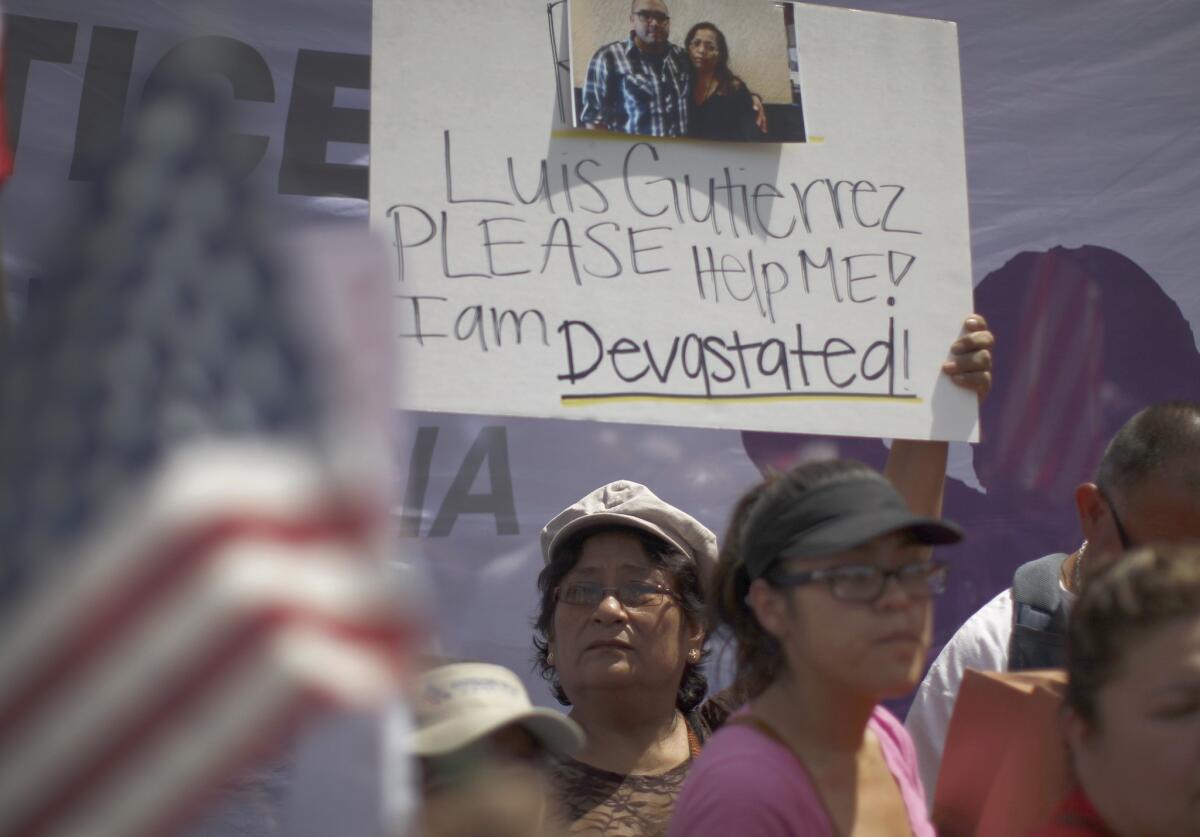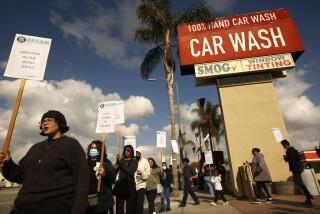State court rules job protections cover workers using others’ ID

California’s legal protections for workers who suffer job discrimination extend to immigrants who illegally use others’ Social Security numbers to get their jobs, the state Supreme Court decided Thursday.
The impact of the 5-2 ruling is likely to be limited because fears of deportation make many immigrants reluctant to sue their employers, lawyers in the case said. At the same time, the ruling might discourage California employers from taking advantage of immigrants without green cards, said Santa Clara University law professor Gerald Uelmen.
“People hire undocumented immigrants and won’t even pay them because they figure, ‘So sue me, you are not going to have any standing in court,’ ” Uelmen said. The law at issue in the case, he said, was designed to prevent such abuses.
The ruling stemmed from a lawsuit by Vicente Salas, who charged that his former employer had refused to accommodate his disability and rehire him for seasonal work in retaliation for his having filed a workers’ compensation claim. Salas had suffered a back injury on the job.
His employer, Sierra Chemical Co., succeeded in getting the lawsuit dismissed after discovering evidence Salas allegedly had used someone else’s Social Security number when he applied for the job.
An appeals court upheld the dismissal, but the state’s high court said federal immigration regulations did not preempt a 2002 state law that protects workers regardless of immigration status.
A worker can sue for lost wages up until the time the employer discovered the employee was barred from working under federal immigration law, the court said.
“Although federal immigration law prohibits an unauthorized alien’s use of any false document to get a job, that law does not prohibit an employer from paying, or an employee from receiving, wages earned during employment wrongfully obtained by false documents, so long as the employer remains unaware of the employee’s unauthorized status,” Justice Joyce L. Kennard, who is now retired, wrote for the majority.
California is estimated to have 2.6 million immigrants who crossed borders without permission — about 7% of the state’s population. Almost one in 10 workers in California lacks documentation, according to a friend-of-the-court brief in the case.
Justice Marvin R. Baxter, joined by Justice Ming W. Chin, partially dissented.
Baxter interpreted federal law to bar states from allowing “an employment-ineligible alien who sought or procured the job by submitting fraudulent eligibility documents” from receiving lost pay for work not performed.
Though the record demonstrated that Salas used another person’s Social Security number, it was not clear whether he had entered the country illegally, Baxter said. He said he would send the case back to the lower court to determine Salas’ immigration status. Salas had said in trial court that he would refuse to answer questions about his immigration status.
About 40 groups urged the court to rule for Salas, arguing that unscrupulous employers otherwise would be encouraged to hire and exploit immigrants in the country illegally. An employers’ law group sided with Sierra Chemical.
Christopher Ho, an attorney with the San Francisco Legal Aid Society-Employment Law Center, said Thursday’s ruling was one of only a few cases nationwide to address the issue and would likely influence other courts in the future.
But Ho also said that many immigrants who lack green cards are reluctant to seek the protection of state laws for fear of being deported.
“Basically they have the same rights as anybody else, but the difficulty is how you vindicate those rights as a practical matter when there are all these risks,” said Ho, who declined to discuss Salas’ immigration status.
Arnold J. Wolf, an attorney for Salas’ employer, said he doubted the ruling would have much impact because such cases are rarely brought.
“The notion that someone who is not legally able to work in the United States can maintain a wrongful-failure-to-hire action is to many people absurd,” he said. “I am a pro-immigration person, but this is the wrong horse to ride. It will engender a lot of antagonism.”
Wolf said no decision has been made on whether to ask the U.S. Supreme Court to review the decision.
maura.dolan@latimes.com
Twitter: @mauradolan
More to Read
Start your day right
Sign up for Essential California for news, features and recommendations from the L.A. Times and beyond in your inbox six days a week.
You may occasionally receive promotional content from the Los Angeles Times.







